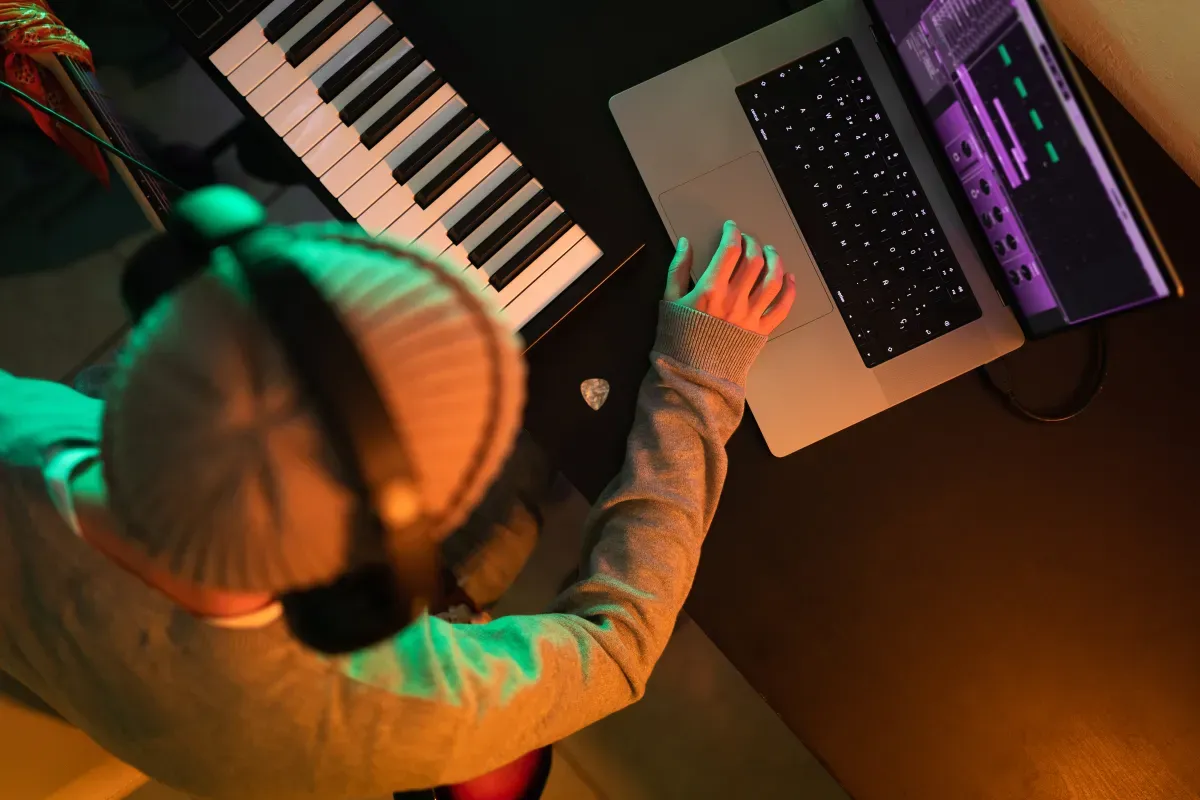Songscription Launches AI Sheet Music Transcription Tool for Musicians
In an era where artificial intelligence is reshaping how we create and learn music, AI sheet music transcription is quickly gaining traction among musicians and educators. A startup called Songscription is leading this revolution with a tool that can turn any song into readable sheet music in just minutes. Whether you're a music student, a teacher in a rural high school, or a hobbyist experimenting with new melodies, Songscription’s freemium platform offers an accessible and efficient way to automate the transcription process. With a simple upload of an audio file—or even just a YouTube link—users can generate sheet music tailored to specific instruments and skill levels.
Image Credits:Alberto Case / Getty Images
How AI Sheet Music Transcription Works with Songscription
At its core, Songscription harnesses AI models to interpret audio recordings and produce high-quality sheet music. The piano model is currently the most reliable, offering clean, precise notation for solo arrangements. Users simply upload a recording, and the AI outputs sheet music almost instantly. In addition to standard notation, Songscription generates piano rolls—a digital visualization of notes on a virtual keyboard. This is especially helpful for those who are not yet fluent in reading traditional sheet music. For creators, it removes the manual burden of transcription; instead of laboriously writing down each note, musicians can now focus on composing and performing.
The tool is designed with flexibility in mind. While piano arrangements are prioritized for accuracy, the company is expanding to other formats like guitar tabs and ensemble arrangements. This makes it easier for users to adapt the output to different musical setups. Importantly, the AI doesn’t create new music—it interprets existing compositions, serving more as a creative assistant than a composer.
Who Can Benefit from Songscription’s AI-Powered Tool
One of the key use cases for AI sheet music transcription is education. CEO Andrew Carlins, a Stanford MBA/MA Education student, envisions a scenario where a high school music teacher in a remote part of the U.S. can access sheet music customized for each student’s ability level and instrument. Instead of struggling to find or write arrangements manually, teachers can offer more relevant, engaging content for their students.
Musicians working on new compositions can also benefit. By uploading a rough recording of a new idea, artists can instantly receive sheet music to refine, share, or collaborate with others. This opens new creative pathways, particularly for independent creators without access to professional transcription services. And for hobbyists, the platform enables a fun and accessible way to play favorite songs without formal training in transcription or music theory.
Ethical and Legal Considerations in AI Sheet Music Transcription
Despite the innovation, Songscription’s model does raise questions about the legality of using copyrighted music in this way. The platform includes a checkbox that requires users to confirm they own the rights to upload and transcribe an audio file. However, as with many creative AI tools, this mechanism relies on the user’s honesty. This could lead to potential misuse—especially for copyrighted commercial songs—by simply checking the box and downloading free sheet music.
Carlins acknowledges this grey area. He notes that it’s generally legal to transcribe songs by ear for personal use, especially if there’s no profit involved. However, automating that process via AI blurs the line between legal transcription and potential copyright infringement. As legal frameworks around generative and interpretive AI continue to evolve, platforms like Songscription must navigate complex intellectual property landscapes. Still, Carlins maintains that Songscription is designed as a productivity enhancer—not a piracy tool.
The Future of AI Sheet Music Transcription
Songscription’s launch marks a pivotal moment in how musicians engage with sheet music. By using AI to streamline transcription, the platform democratizes music education and makes composition more accessible for creators of all levels. Its core appeal lies in its practicality: fast, flexible, and user-friendly transcription that empowers musicians instead of replacing them. While copyright and ethical issues remain unresolved, Songscription's commitment to responsible use and educational empowerment positions it as a valuable player in the broader AI-and-music ecosystem. As the technology matures, we can expect even more advanced features—from ensemble arrangements to real-time transcription—making AI sheet music transcription an indispensable tool in the modern musician’s toolkit.


